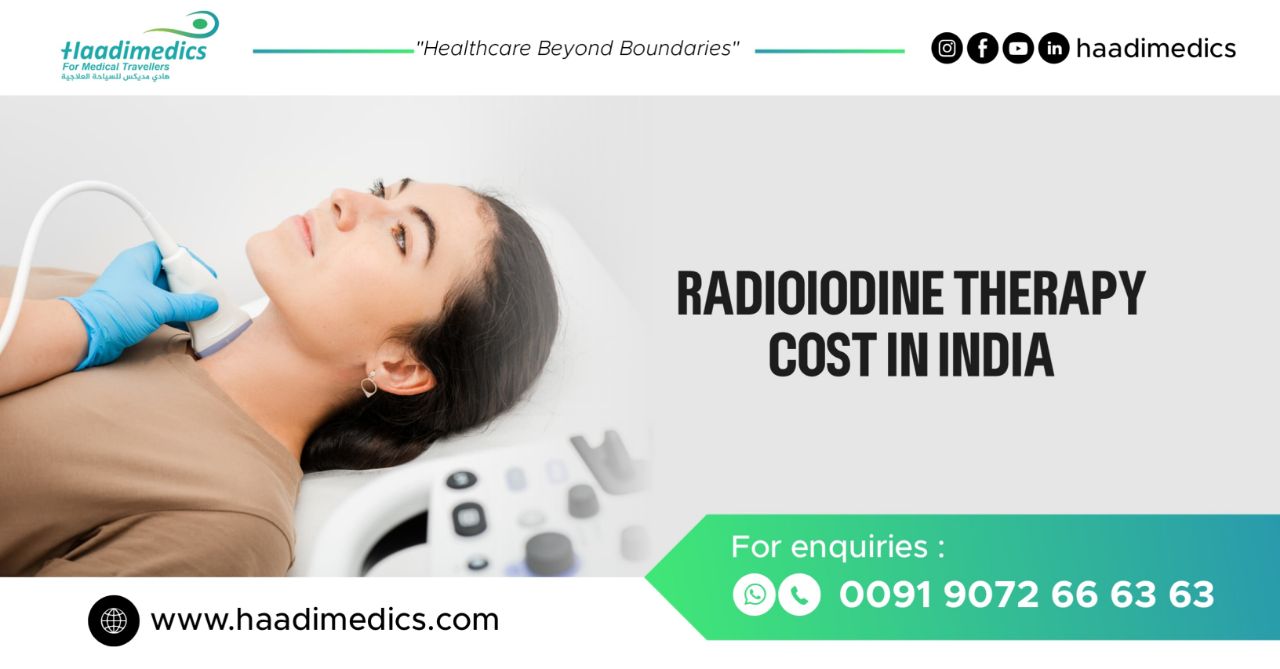Radioiodine therapy is a well-established treatment for certain thyroid conditions. India boasts a rich history in nuclear medicine, with skilled professionals and well-equipped hospitals offering radioiodine therapy at competitive costs.
What is Radioiodine Therapy?
Radioiodine therapy involves administering a radioactive isotope of iodine (I-131) orally. The thyroid gland naturally absorbs iodine, so the radioactive isotope concentrates in the thyroid tissue. This targeted radiation destroys overactive thyroid cells or shrinks an enlarged gland.
Symptoms of Thyroid Issues
- Fatigue
- Weight changes
- Irregular heartbeat
- Difficulty concentrating
- Anxiety or irritability
- Increased sweating
- Hair loss or brittle hair
Why Choose Radioiodine Therapy?
- Effective treatment for hyperthyroidism (overactive thyroid) and some types of thyroid cancer.
- Minimally invasive outpatient procedure.
- Offers a long-term solution in many cases.
Risks and Considerations
- Radiation exposure, though minimal, carries some risks.
- May cause temporary side effects like nausea, fatigue, or dry mouth.
- Certain risks for pregnant.
Preparation for Radioiodine Therapy
- A doctor will assess your health and confirm the need for radioiodine therapy.
- You may need to stop taking certain medications, like thyroid hormone replacements beforehand.
- Dietary restrictions may be necessary in the days leading up to the procedure.
Procedures Involved
- A radioactive capsule or liquid containing I-131 is administered orally.
- The procedure itself is quick and painless and typically done on an outpatient basis.
- You may need to be isolated for a short period after the procedure to minimize radiation exposure to others.
Best Hospitals in India for Radioiodine Therapy
- Fortis Hospital, Gurgaon
- BLK Super Speciality Hospital, Delhi
- Tata Memorial Hospital, Mumbai
- All India Institute of Medical Sciences, Delhi
- Christian Medical College & Hospital, Vellore
- Apollo Hospital, Chennai
Best Doctors for the Therapy
- Dr. Kapil Kumar
- Dr. Alka Kumar
- Dr. Raj Nagarkar
- Dr. Kumara Swamy
- Dr. Vedant Kabra
Cost Comparison
India –INR 191000 (USD 2300)
Turkey –USD 2500
Thailand –USD 4300
FAQ
1. Is radioiodine therapy a cure for hyperthyroidism?
In many cases, yes. It can offer a long-term solution by destroying overactive thyroid tissue.
2. What are the long-term side effects of radioiodine therapy?
There's a small risk of developing hypothyroidism (underactive thyroid) after treatment. Medication and routine observation can control this.
3. Can I travel after radioiodine therapy?
In most cases, yes, after a short isolation period to minimize radiation exposure to others.
4. Will I need follow-up appointments after radioiodine therapy?
Yes, regular follow-up is crucial to monitor thyroid function and adjust medication if needed.
5. What are the alternatives to radioiodine therapy?
Anti-thyroid medications and surgery are alternative treatments for hyperthyroidism.
6. Is radioiodine therapy covered by insurance?
Many insurance plans may cover radioiodine therapy. Check with your provider beforehand.
7. What are the qualifications of the doctor performing the procedure?
Ensure your doctor is a qualified nuclear medicine specialist with experience in radioiodine therapy.
8. What safety measures are taken during radioiodine therapy?
Hospitals follow strict radiation safety protocols to minimize exposure to staff and other patients.
9. What should I expect after radioiodine therapy?
You may experience temporary side effects like fatigue or nausea. Your doctor will guide you on recovery and any restrictions.
10. How long will it take to see the results of radioiodine therapy?
It may take several weeks to see the full effects on your thyroid function.


Comments